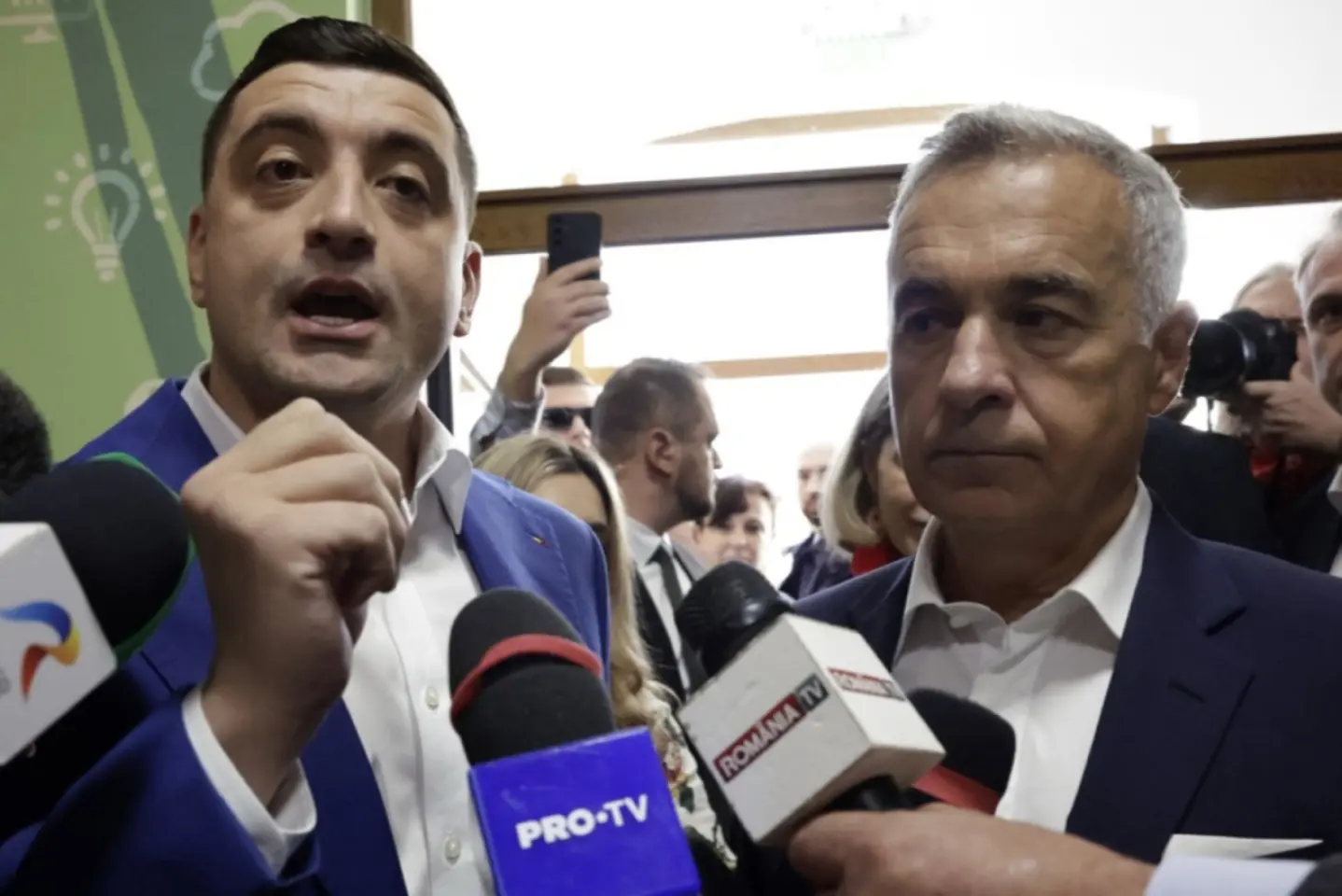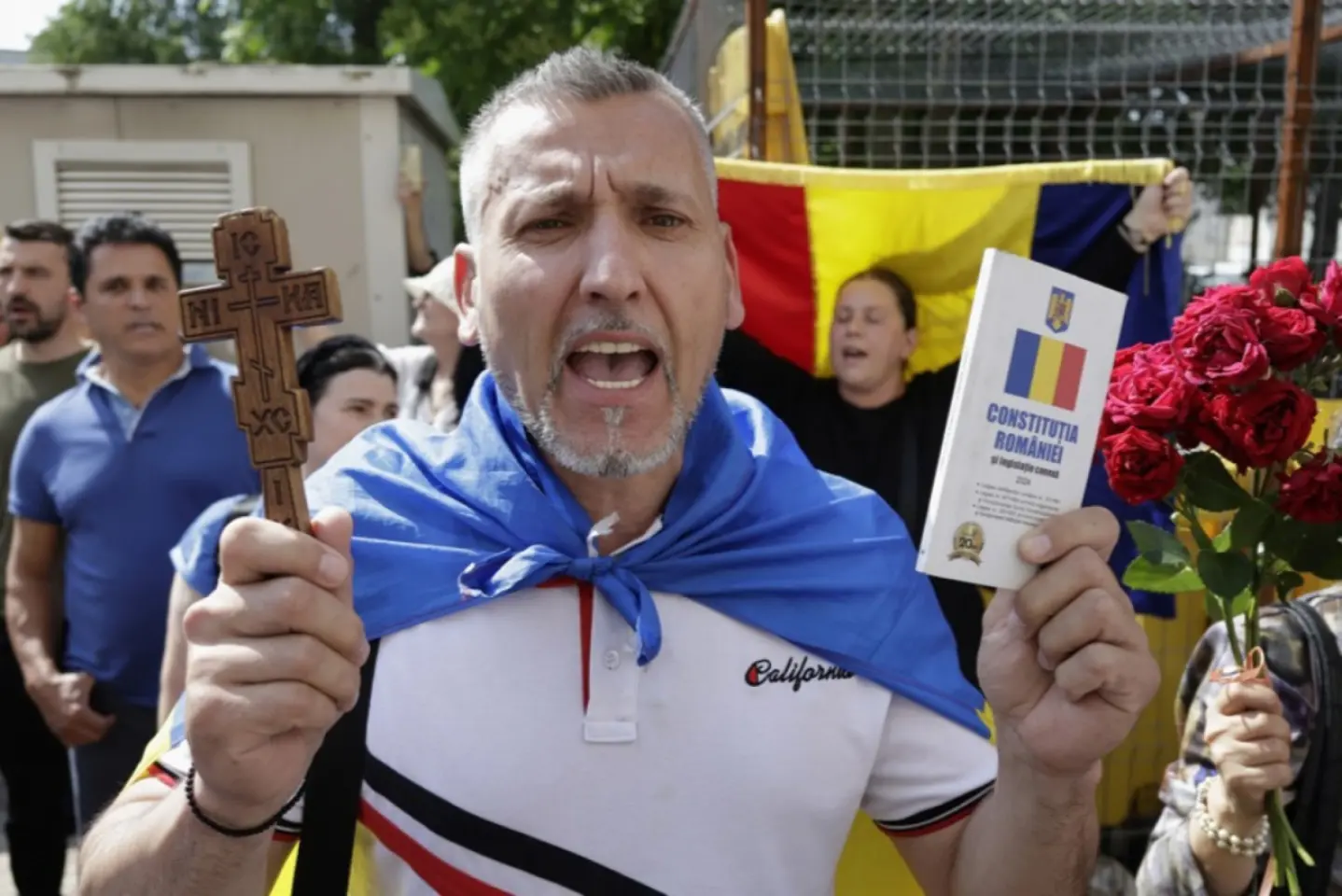
The AUR party should be in power because it ranks first in the polls, sovereignist propaganda writes.

Just like the Legionnaires and the Communists did before them, the Sovereignists have invented their own "enemies of the people and of the country", whom they demonize through visual propaganda. The targets include the EU, Ukraine, Soros, CCR, LGBTQ+, Nicușor Dan and Mugur Isărescu.

The political evolution of (Neo)Legionarism, from pocket political parties, such as those created by Marian Munteanu, to organizations like The New Right (Noua Dreaptă) – the connecting link between (Neo)Legionarism and sovereigntism – and politicians who frequently make the front page, such as George Simion, Călin Georgescu and Diana Șoșoacă.

George Simion made a name for himself as an anti-establishment activist and a militant for the unification of Romania and the Republic of Moldova, first with “Noii Golani” (The New Rascals), then with “Acțiunea 2012” (Action 2012). His collaborators from back then claim that the leader of AUR manipulated and lied to them in order to achieve his goals. They accuse Simion of violence, using minors and the destruction of the unionist movement. Others say that he would disappear for days, only to return with ready-made plans for future actions.

George Simion wants to take over the MAGA image, and his good score in the presidential election has brought him to the attention of European extremists. However, a sovereignist policy would spell economic costs and political isolation for Romania.

Romanians in the Republic of Moldova overwhelmingly voted for Nicușor Dan, even though the ruling party, PAS, supported Crin Antonescu. Directly threatened by Moscow, the Moldovans rejected George Simion who, although he declared himself a unionist, is perceived as pro-Russian across the Prut. On the other hand, George Simion got most of the votes of the Romanian diaspora in Europe, which until recently preferred candidates and parties defined as pro-European and reformist.

Fighting off Russia’ hybrid attacks, Moldova needs a good relationship with Romania. However, several presidential candidates have promoted a sovereignist, even pro-Russian discourse, and one of them was declared persona non grata in the Republic of Moldova.

Romanian extremists seem to believe that the return of Donald Trump is bound to bring them more voters and legitimize a type of discourse marked by populism and false narratives. They also hope that Trump will help them get the power. It is a kind of oxymoronic reasoning that shows that, in fact, Romanian extremists do not even understand the meaning of the word they adopted to define themselves - "sovereignism".

There are no anti-EU, anti-NATO or far-right parties in Romania, claims Ion Cristoiu, a well-known promoter of narratives of Russian origin.